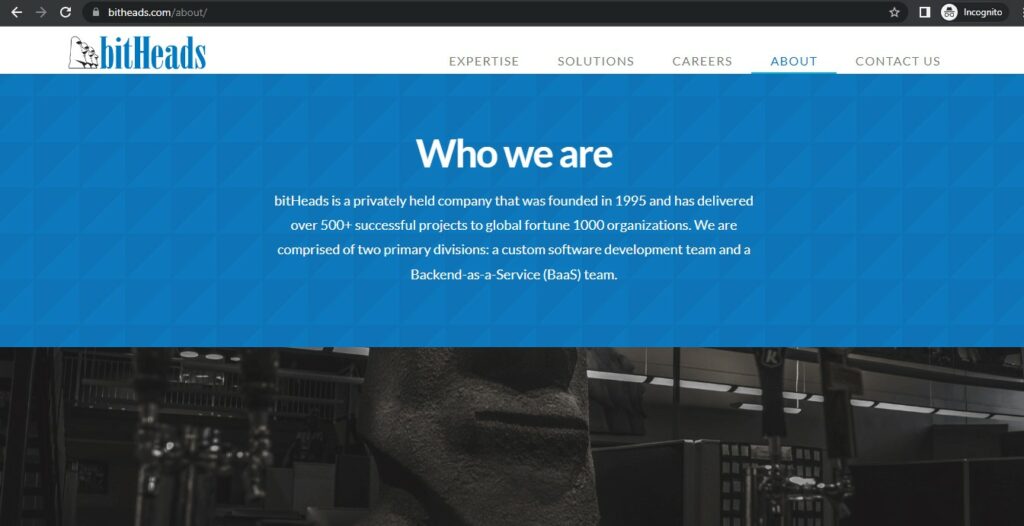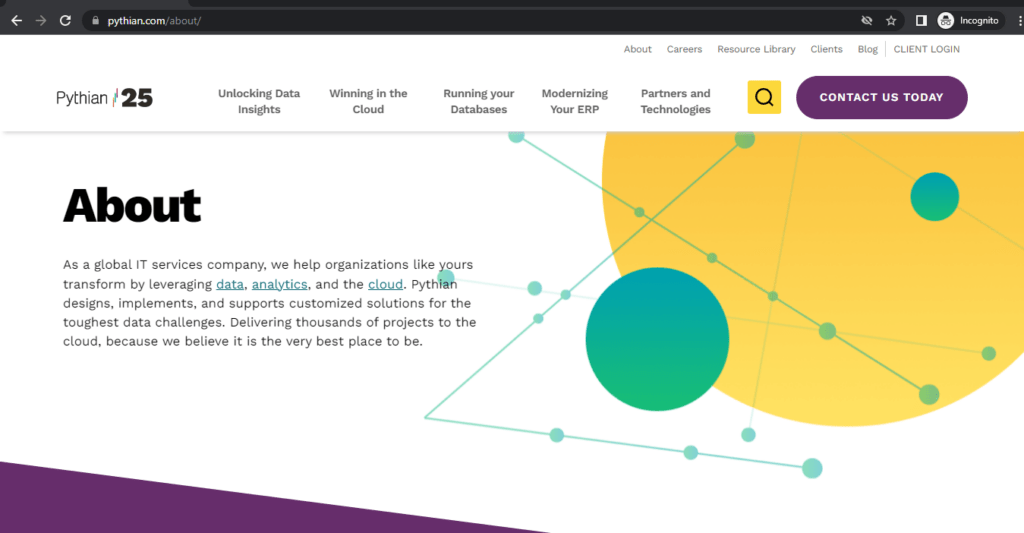Outsourcing business operations to Canada is an emerging trend in the global services industry.
Why is outsourcing to Canada gaining popularity?
Canada is a hub for the services industry primarily due to the growing U.S. demand for nearshore outsourcing. After all, the United States of America lies just on the southern border of Canada.
But that’s not all.
In this article, we’ll cover everything you need to know about outsourcing to Canada, its benefits, challenges, and four Canadian laws to consider. We’ll then highlight the top three outsourcing companies in Canada.
And as a bonus, we’ll provide answers to three frequently asked questions about outsourcing to Canada.
Table of Contents
- 5 key benefits of outsourcing to Canada
- Major challenges of outsourcing to Canada
- Outsourcing to Canada: 4 laws to consider
- Top 3 outsourcing companies in Canada
- Outsourcing to Canada FAQs
Let’s dive in.
5 key benefits of outsourcing to Canada
Usually taken as a cost-savings measure, outsourcing refers to hiring a third-party company to perform services or manufacture products that were traditionally done in-house.
You can outsource services like:
- IT services (Information Technology) like web development, software development, and technical support.
- Call center services like customer support and customer service.
- Supply chain management.
- Human resources.
- Telecommunications.
- Accounting, payroll, and other financial services.
- Healthcare business process outsourcing (BPO).
Outsourcing business processes to Canada is emerging too. Let’s take a look at five key reasons why:
1. Skilled talent pool
Canada is home to a highly-educated, skilled, and experienced workforce.
According to a CMEC report (Council of Ministers of Education Canada), 123,708 Canadians graduated in 2018 with a STEM degree. This is a whopping 51% increase from 2010 (82,089 graduates).
Moreover, the government of Canada has actively taken initiatives like CanCode and PromoScience to help young Canadians become involved in the STEM fields. As a result, you can also expect a steady stream of skilled individuals and tech talent to hit the job market every year.
2. Favorable time zones
Canada shares a time zone with major US cities and countries in South and North America. Moreover, countries in Africa and Europe are only a few hours ahead of Canada.
This means you can set overlapping business hours for unobstructed communication, collaboration, and project flow.
3. Growing tech industry
In recent years, Canada has been attracting top tech talent and the world’s biggest tech firms at a record pace.
Home-grown firms and international companies like Slack and Telus have been setting up and expanding in cities like Montreal and Vancouver. They are also expanding in smaller markets like Quebec City and Hamilton.
Some Canadian tech giants include Avigilon, Bench, and Hootsuite.
4. English language fluency
Canada’s official languages are English and French. And more than 80% of Canadians can converse in English – enabling them to cater to a larger population of clients.
This facilitates smooth communication and helps avoid instances of misinterpretation and misunderstandings. You can easily convey project demands and updates to your Canadian providers, allowing you to maintain smooth workflows.
Moreover, hiring bilingual Canadians can be beneficial when dealing with French-speaking customers and clients.
5. Political stability
According to this 2020 report by the World Bank, Canada’s Political Stability and Absence of Violence/Terrorism percentile rank is 90.1%.
How is this beneficial?
In a politically unstable environment, employees might skip work to participate in strikes and other protests. This can impact the workforce strength, operations, and working conditions of a business – leading to project delays and increased costs.
Next, let’s look at the common challenges of outsourcing to Canada to help you make an informed decision.
Major challenges of outsourcing to Canada
The cost of hiring a Canadian outsourcing team can be quite high compared to other popular outsourcing destinations like Brazil, India, and the Philippines.
Why?
The average monthly salary in Canada is more than six times higher than in these countries. Here are the figures:
| Country | Average Monthly Salary | Difference with Canadian Average Salary |
| Canada | USD 7880 | – |
| Brazil | USD 1852 | – USD 6028 |
| India | USD 417 | – USD 7463 |
| Philippines | USD 851 | – USD 7029 |
Source: salaryexplorer.com
That’s why you need to consider how cost-effective outsourcing to Canada will be in the long run and decide whether that’s a good option for your business needs.
Now that we’ve weighed the pros against the cons let’s understand the legal aspect of outsourcing to Canada.
Outsourcing in Canada is handled by the federal government located in Ottawa. Canadian outsourcing companies need to comply with local laws and regulations about operating on Canadian soil.
However, these regulations can vary from province to province.
Outsourcing to Canada: 4 laws to consider
Here are four common laws that you should keep in mind while outsourcing your business to Canada:
1. Investment Canada Act (ICA)
The Investment Canada Act applies to any acquisition of a Canadian business by a non-Canadian.
If a Canadian company is acquired by a non-Canadian, the investment transaction will either be reviewable or notifiable under the ICA. And a notification in the prescribed form must be made within 30 days of the closing of the transaction.
Note: Whether a business is Canadian is determined based on the citizenship of the individuals who have the ultimate control of the corporation.
However, if the purchaser is a US-controlled company, then the acquisition is subject to review only if it’s a direct investment and the value of the assets acquired exceeds 250 million CAD (Canadian Dollar), subject to certain exceptions.
2. Securities laws
Under the Multilateral Instrument 52-109 Certification (MI 52-109), the CEO and CFO of all Canadian public companies need to certify the accuracy of the annual and interim financial statements and more.
Note: This is not applicable for companies related to investment funds.
Additionally, U.S. companies should ensure that the outsourcing agreement with the Canadian firms (or service providers) contains provisions like appropriate disclosure and reporting mechanisms.
This is done in order to enable American companies to fulfill certain obligations under US’ Sarbanes-Oxley Act, which mandates companies to maintain practices like Internal Controls Report in financial record keeping and reporting.
3. OSFI outsourcing guideline
The Guideline B-10 issued by the Office of the Superintendent of Financial Institutions (OSFI) states that FRFIs (Federally Regulated Financial Institutions) retain ultimate accountability for all outsourced activities.
This guideline relates to outsourcing by banks, branches of certain foreign banks operating in Canada, trust companies, insurance companies, and FRFIs.
The Guideline B-10 requires an FRFI to:
- Assess the risks associated with each outsourcing arrangement.
- Create a process that oversees factors like the impact of the outsourcing arrangement on the finances, reputation, and operations of the FRFI to determine the materiality (significance) of arrangements.
- Execute a program for managing and monitoring risks based on the materiality of the arrangement.
- Ensure the board of directors or the principal officer receives sufficient information to meet their duties under the Guideline.
- Refrain from outsourcing certain business activities like internal audit services to the FRFI’s external auditor.
4. Privacy laws
The Personal Information Protection and Electronic Documents Act or PIPEDA applies to all private sector organizations that collect, use, or disclose personal information in the course of commercial activity.
Personal information is data about an identifiable individual other than the name, title, business address, or contact number of an employee of an organization.
Note: This act is not applicable for organizations in British Columbia, Alberta, and Quebec as they have enacted substantially similar provincial legislation.
Moreover, parties of an outsourcing arrangement should ensure that a broad confidentiality agreement is executed before the commencement of due diligence.
This confidentiality agreement should consist of the limitations on using the disclosed personal data. It should also contemplate the return or destruction of all personal data if the outsourcing transaction is not completed for any reason.
Additionally, the outsourcing agreements should cover:
- Applicable privacy protections to ensure that all personal data is protected to the same extent as it would have been if it were in possession of the outsourcer.
- Covenants that the service provider will comply with all applicable privacy laws.
- Restrictions on the third-party service provider from using or disclosing any personal data transferred to it for any purpose that is unrelated to the services to be performed.
Next, let’s check out some of the leading outsourcing service providers in Canada and the services they offer.
Top 3 outsourcing companies in Canada
Here’s a quick look at the top three Canadian outsourcing companies:
1. bitHeads

bitHeads, located in Ottawa, Ontario, is a software development company that focuses on custom application development like mobile apps, enterprise software, and network management.
Services offered
- Enterprise infrastructure development.
- Cloud services.
- Internet of Things (IoT).
- Game development.
- Cross-platform compatibility.
2. 24-7 Intouch

24-7 Intouch, headquartered in Winnipeg, is a global contact center and BPO company that delivers quality customer service solutions across all industry segments.
Services offered
- Omni-channel customer care.
- Content and brand moderation.
- Workforce management.
- Data annotation.
- Quality assurance.
3. Pythian

Pythian is an IT service management company based in Ottawa, Ontario. It helps organizations transform through data, analytics, and cloud-related services.
Services offered
- Cloud managed services.
- Enterprise data platform services.
- Database consulting and migration.
- Analytics strategy and planning.
- DevOps consulting services.
Still have doubts about outsourcing to Canada?
Read on to find answers to some frequently asked questions!
Outsourcing to Canada FAQs
Here are three frequently asked questions about outsourcing to Canada:
1. What are the common types of outsourcing structures?
Here are some outsourcing structures in Canada:
- Direct outsourcing: The customer contracts directly with a Canadian company. This helps them streamline their operations and enjoy the cost advantages that a large supplier of the outsourced service can offer.
- Indirect outsourcing: The customer appoints a Canadian BPO company that immediately subcontracts to another entity.
- Multi-sourcing: The customer contracts with several Canadian suppliers for a range of specific outsourcing services offered by each.
- Joint Venture: A customer and a Canadian service provider can operate as a joint venture. A joint venture in Canada can take the form of a business corporation, a partnership, or a relationship defined by a contract.
- Wholly Owned Subsidiary: It is also possible for the customer to outsource to its own wholly-owned subsidiary, giving the customer a large measure of control over the Canadian outsourced services.
- Cloud Computing: A customer acquires the right to access IT infrastructure and services as required. The Canadian service provider offers services remotely, and the infrastructure is shared with other customers.
- Build, Operate, and Transfer: A customer may enter into an arrangement with a Canadian business to build and operate an organization that would eventually be transferred by the Canadian business to the customer.
2. What are the standard charging methods you can use?
A Canadian outsourcing company may charge you in any of the following ways:
- Fixed price: The client pays a predetermined price to the Canadian service provider. It’s used in outsourcing set-ups where the volume of the services provided is predictable and non-volatile.
- Cost-plus: The client needs to pay the Canadian outsourcing company its actual cost of providing the services plus an agreed profit margin.
- Resource-based charges: The client commits to a fixed recurring charge that is calculated based on the projected service volume.
- Time and materials: The client pays an agreed-upon unit price to the Canadian firm for specific items of service like volumes of data processed or the hourly rates of deliveries made.
3. What due diligence should you do before entering an outsourcing contract?
Some key areas for diligence include:
- Capacity and experience of the Canadian service provider and any known material subcontractor.
- Data protection and security practices and certifications.
- Service level guarantees.
- Price and charging method.
- Flexibility regarding volume and type of service.
- Disaster recovery and business continuity plans.
Wrapping up
With a skilled talent pool and growing tech industry, outsourcing to Canada is on the rise, and for all the right reasons.
Additionally, the Canadian government’s active initiatives to upskill Canadians make it an attractive outsourcing destination.
Use the information we covered here to gauge whether outsourcing to Canada is the right choice for your business.

Andy is a technology & marketing leader who has delivered award-winning and world-first experiences.


